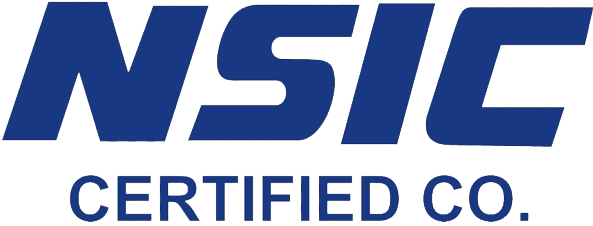Hold on — films tell stories, not compliance manuals. Right away: if a movie makes a casino seem glamorous and practically effortless to beat, treat that as drama, not strategy. In the next few minutes you’ll get concrete checks to separate cinematic fiction from real-world casino mechanics, plus an actionable map to support services and self-help steps for Australians worried about gambling harm.
Here’s the thing. Movies compress time, dramatise luck and highlight rare extremes. That creates two harmless effects — better entertainment — and one dangerous side-effect: normalising risky behaviour. Below I unpack five cinematic tropes, contrast them with operational reality at casinos, and give practical support options (including quick triage steps and a comparison table) so a worried friend — or you — can act fast.

How cinema distorts gambling — and why that matters
Wow — the montage of a character hitting “one big spin” looks thrilling, but it’s also statistically misleading. Film examples tend to rely on three persistent tropes: guaranteed systems, dramatic hot streaks, and villainous sharks who always cheat. In reality casinos run on probability, regulated systems and audited Random Number Generators (RNGs) — not movie magic.
On the one hand, movies compress variance into story beats: one night = full arc, one spin = life-changing. On the other hand, gambling in the real world is long-tailed; big wins exist but are rare and bound by house edge and volatility. Practically, novices should remember two rules: bankroll control beats superstition, and offer terms (bonuses, comps) carry fine-print constraints that movies never show.
Fact vs Fiction — five common screen myths, explained
Hold on. Myth-busting time.
- Myth: There’s a foolproof system to beat the house. Fact: Some strategies reduce variance or exploit promotional edges, but no legal system eliminates the house edge over the long run.
- Myth: Dealers or machines can be “read” like characters. Fact: Licensed tables and RNG slots are monitored and audited; anecdotal “tells” rarely translate into reliable profit.
- Myth: Casinos hide huge loopholes for VIPs. Fact: VIP comps exist, but large payouts and credit are subject to strict KYC/AML checks and legal oversight in regulated markets.
- Myth: A single lucky night justifies chasing losses. Fact: Chasing increases losses; chasing is a well-documented behavioural trap linked to escalation and problem gambling.
- Myth: Online casinos operate like movie-set dens of vice. Fact: Many operators are licensed and audited; still, offshore and unlicensed sites can be risky — always check licensing and player reviews.
Where fiction overlaps reality — three practical checks
Hold on — this is useful. Before you sign up anywhere or take film-inspired “advice,” run these three checks:
- Licence and regulator: Is the operator licensed and by whom? (In Australia the regulator to check is the ACMA for illegal offshore operations; licensed Australian operators will be transparent about state or territory regulators.)
- Withdrawal history & reviews: Search independent complaint trackers and player forums for withdrawal or KYC issues; deposit ease vs withdrawal friction is a red flag.
- Bonus math: Convert any advertised bonus into required turnover using the stated Wagering Requirement (WR). Example: WR 35× on (D+B) for $100 deposit + $200 bonus => turnover = ($300)×35 = $10,500.
Support options — a quick comparison
Here’s a compact comparison to choose the right starting point when gambling becomes a problem.
| Option | What it is | How it helps | Timeline / Typical outcome | Best for |
|---|---|---|---|---|
| Professional counselling | Therapists trained in gambling harm (CBT, motivational interviewing) | Targets thought patterns, relapse prevention, co-morbid issues | 8–20 sessions; measurable reduction in risky behaviour | People with moderate to severe harm |
| Peer support (Gamblers Anonymous) | Peer-led meetings, shared experiences and accountability | Provides social support and relapse checks | Ongoing; useful lifelong support | Those seeking community & accountability |
| Self-exclusion / blocking tools | Account-level limits, site blocks, financial card blockers | Immediate friction to prevent impulsive play | Immediate effect; requires follow-through | People needing an urgent safety barrier |
| Financial counselling | Debt advice, budgeting plans | Reduces financial harm and structures repayment | Weeks–months depending on complexity | Players with debt from gambling |
Real-world example: spotting a risky operator
At first a slick website and a huge welcome package feel reassuring; then withdrawal delay requests start piling up. On the one hand, reputable sites post license details and third-party audit seals; on the other, offshore brands using aggressive sign-up incentives and slow KYC processing are classic danger signs. For instance, when you see excessive WR on (D+B), unclear license ownership, and community complaints about non-payment — treat that operator as high-risk. If you want to see how operators present big bonuses visually, compare that to the terms they bury; a site like pokiespins shows the pattern of large advertised offers that merit careful reading of the fine print.
Quick Checklist — immediate steps if you or someone you know is struggling
- 18+ check: Ensure age restrictions are respected; no minors.
- Pause: Log out and block the site on your devices for 24–72 hours to create breathing space.
- Self-exclude: Use site tools or national schemes immediately (where available).
- Contact support: Call professional hotlines — in Australia ring Gambling Help on 1800 858 858 or visit online services for chat options.
- Secure finances: Remove saved cards, set bank alerts, consider card blockers or changing card numbers.
Common Mistakes and How to Avoid Them
- Mistake: Assuming bonuses are “free money.”
Avoid: Always calculate real wagering obligation and realistic chance of clearing it. - Mistake: Chasing losses after a “near win”.
Avoid: Use flat stakes or session limits; if emotions spike, walk away for at least 24 hours. - Mistake: Underestimating KYC/withdrawal friction.
Avoid: Read withdrawal terms and community complaint histories before depositing. - Mistake: Thinking self-control alone will be enough.
Avoid: Combine behavioural barriers (self-exclusion, blockers) with support (counsellor or peer group).
Mini-FAQ
Q: Can watching movies teach me useful strategies?
A: Short answer — no. Films are narrative devices; they emphasise drama over statistics. Use films as cultural insight, not a how-to guide. If you want actual strategy, read audited RTP figures, volatility notes, and third-party RNG reports from software providers.
Q: What immediate support is available in Australia?
A: Call Gambling Help on 1800 858 858 or visit online counselling services like Gambling Help Online for confidential support and referrals to local services.
Q: How do I check a casino’s credibility?
A: Look for verifiable license numbers, readable terms (withdrawal limits, WR on bonuses), third-party audits (eCOGRA, iTech Labs), and independent player complaints. Absence of these is a red flag.
Q: When should I seek professional help?
A: If gambling causes financial stress, relationship harm, or you feel unable to stop, seek professional counselling. Early help reduces long-term harm.
Small case study — a 4-step recovery micro-plan (hypothetical)
Case: Alex, 32, noticed weekly losses creeping up after inspired late-night movie sessions. Step 1: Immediate friction — Alex used self-exclusion and installed a bank block on all gambling transactions. Step 2: Financial triage — spoke to a free financial counsellor to pause credit repayments and set a budget. Step 3: Therapeutic work — began 12 sessions of cognitive behavioural therapy focusing on triggers and coping tools. Step 4: Community support — joined a weekly peer support group. After three months, Alex reduced gambling spending to zero and rebuilt a buffer for emergencies. The key: layered defenses (behavioural + financial + therapeutic).
18+ — If gambling is causing you distress, get help. In Australia contact Gambling Help on 1800 858 858 or visit the online counselling portal. If you are outside Australia, consult local mental health and gambling support services. Responsible gambling tools include deposit/session limits, self-exclusion, and blocking software; use them proactively.
Final echoes — what to remember
Here’s what bugs me about the on-screen portrayal of gambling: it often simplifies causation and hides the long grind. On the one hand, some films can nudge people into curiosity about games and odds; on the other, they can normalise risky patterns. Practical takeaway: treat cinematic gambling as fiction, not guidance. If you’re shopping for an operator or checking promotional claims, verify licence details, read wagering math aloud, and search complaint records before funding an account.
For anyone comparing user experiences and promotional patterns, a useful exercise is to open the terms and search for “wagering requirement”, “withdrawal”, “maximum cashout” and “KYC”. If multiple red flags appear — aggressive WR on (D+B), opaque ownership, repeated withdrawal complaints — move away and choose a licence-backed alternative.
Sources
- https://www.acma.gov.au — guidance on offshore gambling and regulatory actions.
- https://www.health.gov.au — resources on gambling harm and treatment options.
- https://www.who.int — research on addictive behaviours and public health approaches.
- https://www.lifeline.org.au — crisis support (if immediate help is required).
About the Author: Jordan Blake, iGaming expert. Jordan has 10+ years’ experience analysing online casino markets and player protection measures in the APAC region, and works with charities to improve gambling harm responses.










